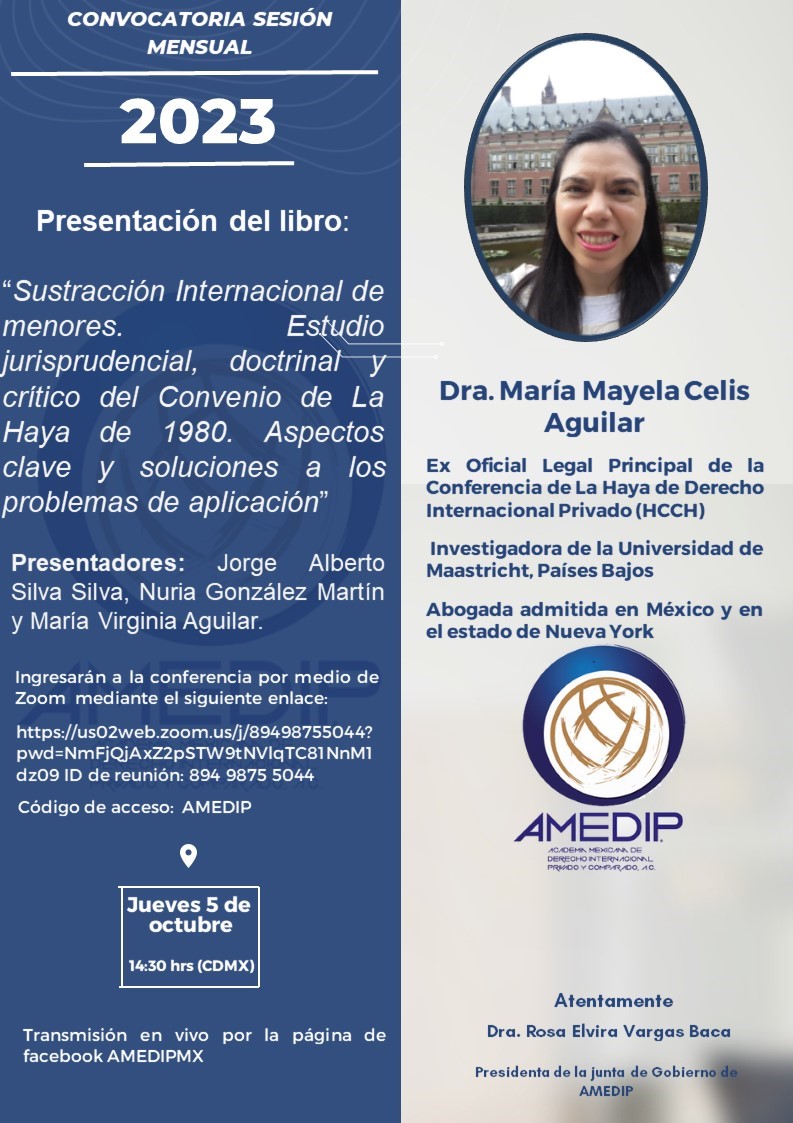Views
Forcing a Square Peg into a Round Hole – The Actio Pauliana and the Brussels Ia Regulation
Earlier today, the Court of Justice held that, under certain circumstances, special jurisdiction for an actio pauliana can be based on Art. 7(1) Brussels Ia (Case C-337/17 Feniks).
The actio pauliana is an instrument provided by the national laws of several EU member states that allows the creditor to challenge fraudulent acts by their debtor that have been committed to the creditor’s detriment. The ECJ already had several opportunities to decide on the availability of individual grounds of special jurisdiction for such an action, but has reliably denied their availability. In today’s decision however, the Court confirmed the availability of special jurisdiction for matters relating to contract, contrary to the proposition of AG Bobek (Opinion delivered on 21 June 2018). Read more
International commercial courts: should the EU be next? – EP study building competence in commercial law
By Erlis Themeli, Xandra Kramer, and Georgia Antonopoulou, Erasmus University Rotterdam (postdoc researcher, PI, and PhD candidate ERC project Building EU Civil Justice)
Previous posts on this blog have described the emerging international commercial and business courts in various Member States. While the primary aim is and should be improving the dispute resolution system for businesses, the establishment of these courts also points to the increase of competitive activities by certain Member States that try to attract international commercial litigation. Triggered by the need to facilitate business, prospects of financial gain, and more recently also by the supposed vacuum that Brexit will create, France, Germany, the Netherlands, and Belgium in particular have been busy establishing outlets for international commercial litigants. One of the previous posts by the present authors dedicated to these developments asked who will be next to enter the competition game started by these countries. In another post, Giesela Rühl suggested that the EU could be the next. Read more
Genocide by Expropriation – New Tendencies in US State Immunity Law for Art-Related Holocaust Litigations
On 10 July 2018, the United States Court of Appeals for the District of Columbia Circuit rendered its judgment in the matter of Alan Philipps et al. v. the Federal Republic of Germany and the Stiftung Preussischer Kulturbesitz.
This case involves a claim by heirs of Holocaust victims for restitution of the „Welfenschatz“ (Guelph Treasure), a collection of medieval relics and devotional art housed for generations in the Cathedral of Braunschweig (Brunswick), Germany. This treasure is now on display at the Kunstgewerbemuseum Berlin (Museum of Decorative Arts) which is run by the Stiftung Preussischer Kulturbesitz. The value of the treasure is estimated to amount to USD 250 million (according to the claim for damages raised in the proceedings). Read more
News
Symposium for Trevor Hartley at LSE on 27 October 2023
Written by Ugljesa Grusic, Associate Professor at University College London, Faculty of Laws
Jacco Bomhoff (LSE), Ugljesa Grusic and Manuel Penades (KCL) are pleased to announce that the LSE Law School will host a symposium to celebrate the scholarly work of emeritus professor Trevor C Hartley.
Trevor has long been one of the world’s most distinguished scholars of Conflict of Laws (Private International Law), continuing a tradition started at the LSE by Professor Otto Kahn-Freund. For many decades, he has been at the forefront of developments in the field. As a prominent critic, notably of the Court of Justice’s efforts to unify European private international law. But also as an active participant in projects of legislation and modernization. And as author of authoritative treatises and clear and accessible student textbooks.
Book Launch: International Child Abduction, Mayela Celis (Madrid: Dykinson, 2023) on 5 October 2023 (in Spanish)

The Mexican Academy of Private International and Comparative Law (AMEDIP) is holding a webinar on 5 October 2023 at 2:30 pm (Mexico City time), 10:30 pm (Europe, CEST time) to launch the book entitled:
International Child Abduction: jurisprudential, doctrinal and critical study of the 1980 Child Abduction Convention. Key concepts and solutions to application problems (Madrid: Dykinson, 2023) 604 pp.
For more information about the book, see our previous post here.
The book will be presented by the author and the following AMEDIP members: Professors Jorge Alberto Silva Silva and Nuria González Martín, as well as the family law attorney María Virginia Aguilar.
The webinar will be held in Spanish and the details are:
Link: https://us02web.zoom.us/j/89498755044?pwd=NmFjQjAxZ2pSTW9tNVlqTC81NnM1dz09
Meeting ID: 894 9875 5044
Password: AMEDIP
Participation is free of charge.
This event will also be streamed live: https://www.facebook.com/AmedipMX
Symposium on Reparation for “Crimes of the Past” in Strasbourg (Oct. 19–20)
Written by Dr. Delphine Porcheron, Associate Professor at the University of Strasbourg Law Faculty
On October 19 and 20, the University of Strasbourg is organizing a symposium on Reparation for “Crimes of the Past”.
Mass crimes, deportations, spoliations, colonial exploitation, slavery… The “crimes of the past” are first known to us as historical facts. Their protagonists have mostly disappeared; they have been documented by historians; almost all of them are mentioned in school textbooks. They have become part of our collective memory as disastrous episodes of a bygone past.


